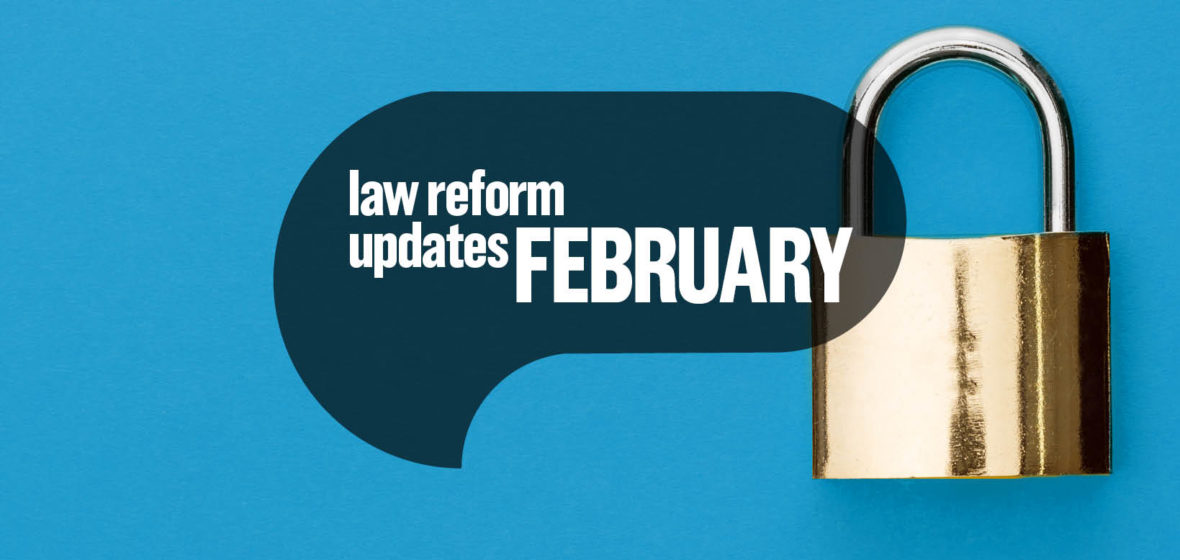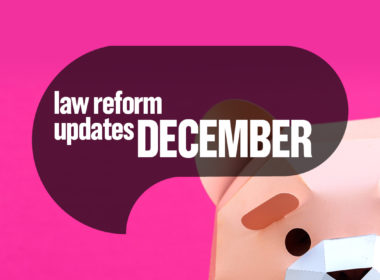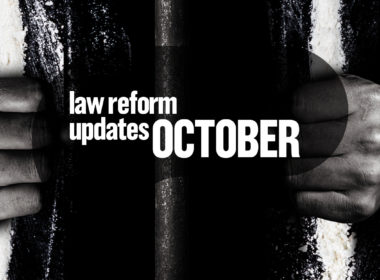Key developments
- Inquiry into the Public Interest Disclosures Bill 2021 (NSW)
- Inquiry into the performance and integrity of Australia’s administrative law system
- Model Operating Requirements version 7.1
- New annual reporting for strata schemes
- Consultation on McDougall Review, COVID-19 and future opportunities for personal injury schemes
Inquiry into the Public Interest Disclosures Bill 2021 (NSW)
The Law Society provided a submission to the inquiry into the Public Interest Disclosures Bill 2021 (’PID Bill’) which seeks to completely re-write the regime for public interest disclosures in NSW.
The Ombudsman prepared a Special report by the NSW Ombudsman on the Public Interest Disclosures Bill 2021 noting its overall support for the PID Bill. The Special report also notes that the Ombudsman’s office ‘will require a significant commitment of additional resources to undertake preparatory work and to establish the enhanced oversight functions for which we will be responsible.’
The Law Society’s submission, informed by its Public Law Committee, supported the passage of the PID Bill. It also took the opportunity to reiterate the Ombudsman’s observation that timely and increased resourcing will be required to ensure the new scheme’s success. This includes, in particular, funding for integrity agencies, which the Law Society has previously advocated on.
Inquiry into the performance and integrity of Australia’s administrative law system
The Law Society provided a submission to the Law Council, informed by its Public Law Committee.
The submission noted that the forthcoming article by Dr Boughey, ‘A call for ongoing political commitment to the administrative law project,’ squarely addresses the terms of reference, and the letter expressed its support for the positions set out in that article, drawing particular attention to arguments made in respect of the following issues:
- Noting that the Administrative Appeals Tribunal (‘AAT’) is the centrepiece of the Australian administrative law system, adopting a fair and transparent merit selection process for AAT members;
- Reinstating and properly funding the Administrative Review Council, noting the clear need for a mechanism for longer term review and continuous improvement in the administrative law system; and
- Properly funding the Office of the Australian Information Commissioner in order to ensure a proper process for access to government information.
The letter requested that the Law Council advocate for the Government to respond to the 2019 Report on the Statutory Review of the Tribunals Amalgamation Act 2015, noting that many of the recommended measures continue to be pressing and relevant, including to this inquiry.
Model Operating Requirements version 7.1
The Property Law Committee contributed to a submission to the Law Council, with additional contribution from the Trust Account Department, regarding draft version 7.1 of the Model Operating Requirements (‘MORs’). The MORs govern the operation of Electronic Lodgment Network Operators (‘ELNOs’). Many of the proposed changes are to support interoperability in eConveyancing.
Overall, some improvements had been made from the earlier consultation version 7, such as a new prohibition on ELNOs charging an interoperability fee to practitioners. Our submission concentrated on some of the technical limitations of the drafting which effectively concentrate too heavily on the titling and registration aspects of a conveyancing settlement and overlook the financial aspect of the settlement. For proper regulation of interoperability, both aspects need to be addressed in the regulatory framework.
The submission also reiterated our position that the content of interoperability agreements between ELNOs should be minimised and, wherever possible, provisions should be located in the MORs, particularly aspects that impact upon practitioners and their clients, such as claims management. We also raised some practical compliance matters in relation to trust accounting records for interoperable conveyancing transactions.
New annual reporting for strata schemes
The Property Law Committee contributed to a submission to the Department of Customer Service in relation to new annual reporting obligations for strata schemes. The submission commented on the draft Strata Schemes Management Amendment (Information) Regulation 2021 and accompanying Explanatory Paper. The regulation sets up a new annual obligation for strata schemes to provide certain information after its annual general meeting, for the purposes of a new strata hub being created in NSW.
The Law Society has been involved in consultation on the development of the strata hub over several years. The stated aim of this new centralised digital platform is to make it easier for anyone who builds, owns, lives or works in a strata scheme to get the information they need. The platform will also manage the building defect bond after it is lodged through the NSW ePlanning portal, which pays for any defects found in the first 24 months after finishing the building work. Throughout its development, the Law Society’s main concerns have been the lack of clarity regarding the scope and purpose of the hub, who should have access to the hub and the currency of information in the hub. Broadly speaking we supported the careful phased implementation of the strata hub and the considerations given to who should be able to access information.
We also raised some suggestions for additional information that could be included in the hub, such as whether or not a scheme is part of a Building Management Committee, and the last valuation of the building for insurance purposes. The submission also included several drafting suggestions in relation to the draft regulation.
The Strata Schemes Management Amendment (Information) Regulation 2021 was published on 17 December 2021 and commences on 30 June 2022.
Consultation on McDougall Review, COVID-19 and future opportunities for personal injury schemes
The Injury Compensation Committee contributed to a submission to the State Insurance Regulatory Authority on workers’ compensation reforms recommended by the McDougall review and reforms proposed in the 2020 Law and Justice Review of the workers’ compensation system on thresholds, entitlements and costs.
The Law Society submission restated long-held positions of the Law Society, including the need for a fair compensation system that does not prevent injured workers from receiving compensation beyond an arbitrary point in time and that allows for a further assessment of impairment in cases of significant deterioration.
On the issue of legal costs, the submission reiterated the Law Society’s position that the regulations should make provision for the annual indexation of legal costs, as a minimum.
The Law Society noted that greater alignment between the workers’ compensation and CTP schemes is desirable, but that this should be designed in such a way as to promote greater fairness, accessibility, and efficiency within both schemes.




